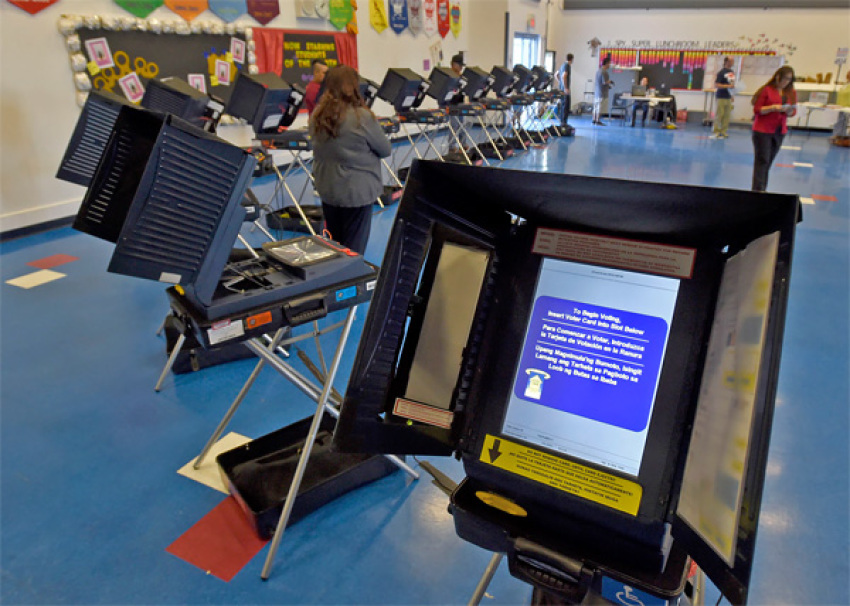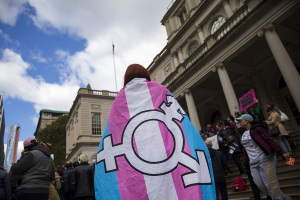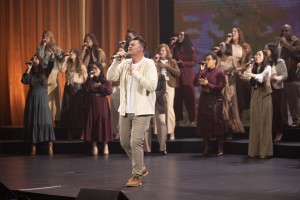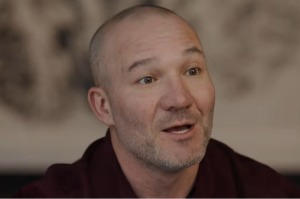HR 1 contains ‘religious test for redistricting,’ FRC warns

A prominent conservative think-tank warns that a provision in H.R. 1 passed by the U.S. House contains an unconstitutional “religious test” for those wanting to serve on independent redistricting commissions.
The Family Research Council, a socially conservative think-tank based in Washington, D.C., asserted in a piece on its website that the “For the People Act,” also known as H.R. 1, contains a “religious test for redistricting.”
The For the People Act, billed as a necessary reform to expand voting rights, passed the House on an almost party-line vote on March 3, with one Democrat joining all Republicans in voting against the measure.
The Act calls for the establishment of independent redistricting commissions in every state. The commissions would draw voting districts every 10 years to reflect the most recent census population figures. Currently, the method used to draw districts for the House of Representatives varies from state to state, with some states vesting that authority in the legislature and others relying on independent redistricting commissions to draw the districts.
Section 2412 of the For the People Act establishes guidelines for who is eligible to serve on the nonpartisan redistricting commissions the legislation calls for. Candidates for the commissions must fill out an application listing “the reason or reasons the individual desires to serve on the independent redistricting commission, the individual’s qualifications, and information relevant to the ability of the individual to be fair and impartial.”
Applicants are asked to share personal information, including “any involvement with, or financial support of, professional, social, political, religious, or community organizations or causes.” The portion of the proposed application calling on people to disclose “involvement with” or “financial support of” religious organizations raised concerns for the Family Research Council.
“While it may appear minor, this is incredibly problematic because it suggests that religious affiliations may affect an individual’s ability to be impartial, and thereby may make them ineligible to serve on the commission,” wrote Travis Weber, the vice president for policy and government affairs at Family Research Council and the author of the blog post. “Article 6, Clause 3, of the U.S. Constitution states that ‘no religious Test shall ever be required as a Qualification to any Office or public Trust under the United States.’”
“As cancel culture rages, it is easy to see how this provision will be utilized to target conservative Christians, whose biblical values are increasingly at odds with the culture’s embrace of certain favored ideologies,” he warned.
The Family Research Council’s warning that H.R. 1 has a religious test hidden in the nearly 800-page bill is not the only part of the legislation causing conservatives and Republicans concern. Hans von Spakovsky, an election expert with the conservative think tank The Heritage Foundation, previously told The Christian Post that H.R. 1 will “make it easier to cheat and easier to manipulate election results.”
Von Spakovsky also expressed concern that the For the People Act will “restrict and chill First Amendment-protected political activity” by requiring nonprofit organizations to “reveal who their donors are.”
Like Weber, von Spakovsky and 20 state attorneys general believe that certain parts of the bill are unconstitutional, specifically because they vastly increase the federal government’s role in managing elections despite the fact that the U.S. Constitution grants states broad discretion when it comes to setting election policies.
While the For the People Act passed the House, where legislation can pass with a simple majority, its future remains uncertain in the Senate, where legislation requires 60 votes to pass. Democrats have a narrow 50-50 majority in the Senate, with Vice President Kamala Harris serving as the tie-breaking vote.
In order for the For the People Act to overcome a filibuster, it would need to secure the support of 10 Republicans. Top Senate Democrats have threatened to invoke the so-called “nuclear option” to abolish the filibuster and enable legislation to pass the Senate with a simple majority.
Because Democratic Sen. Joe Manchin of West Virginia has reaffirmed his support for maintaining the filibuster, Democrats might find themselves unable to accumulate the votes required to abolish the filibuster and pass H.R. 1.



























